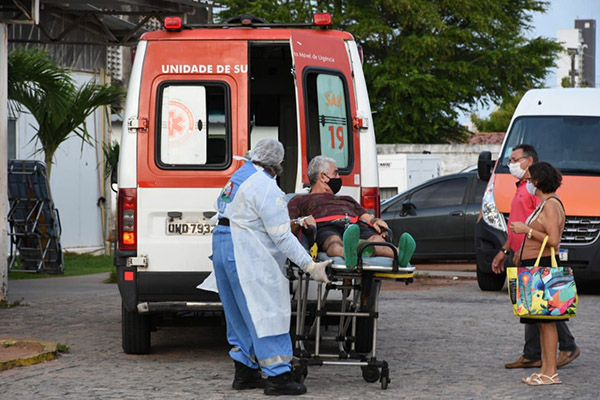
The Ministry of Health (MS) and the Laboratory of Technological Innovation in Health (LAIS / UFRN) have signed a partnership with the aim of strengthening the Unified Health System (SUS) in the areas of auditing and health economics. The agreements are made through two Decentralized Implementation Terms (TED), which deals with the development of activities that also involve international universities.

The project is based on relevant studies and research
The project focuses on the area of impact assessment and cost-effectiveness in SUS and aims to develop technical-scientific cooperation on a national and international scale in the field of health economics. Its main objective is to analyze and evaluate public health policies from the perspective of cost-effectiveness. In this sense, aspects such as equity in health and economic analysis of health systems and service delivery will be analyzed, as well as methods for evaluating the impact of health programs and policies.
According to the Executive Director of LAIS / UFRN, Ricardo Valentim, the project is based on relevant studies and research, in which international cooperation with universities in the United Kingdom and the United States, and the training of masters and doctors both in Brazil and universities are expected. abroad. “Brazil is putting in place several public health policies and related programmes, however, we still do little analysis of their impacts. In this context, this project could create new methods and tools for assessment and analysis of management and management of SUS, as well as strengthening international research networks in Brazil in the field of Public health and global health”.
This partnership between the Ministry of Health and the Academy, both nationally and internationally, is one of the ways to find a technical basis that allows improving the way health is managed, as well as any other public policy. For Director of the Department of Health Economics, Investment and Performance at the Ministry of Health, Everton Macedo, the partnership with UFRN aims to improve equity in the health system, improve methods for economic analysis of how resources are allocated in the health system and develop analyzes of the impact of current health programs and policies. “We believe this partnership will shorten the time we need to use to deliver results in the unified health system,” Everton says.
The other project is in the field of SUS auditing, whose subject has directed important research in LAIS/UFRN with national coverage, being one of the references in Brazil. Its objective is to develop research aimed at training auditors in SUS, applying the use of new techniques, processes and methods to auditing, monitoring, monitoring and evaluating public policies.
This intervention project, which integrates scientific and technological development into the general review of SUS, aims to strengthen the unified health system. Through it, artificial intelligence and more efficient and effective control and audit models will be applied. The project will train 200 SUS auditors throughout Brazil at the specialty level, five doctors and another 30 masters.
According to the Auditor General of SUS, Claudio Costa, the technical cooperation with LAIS / UFRN for the qualification of auditors of the National Audit System (SNA) is a significant milestone in the history of AudSUS and SUS itself, providing the possibility of qualifying auditors. At the three federal levels throughout Brazil. “During the qualification process, the auditors will have to submit intervention proposals that improve the performance of the health audit activity, based on the use of innovation tools and data science aimed at the SUS audit, enhancing the quality of the work to be developed “, Costa continues.

“Friendly zombie guru. Avid pop culture scholar. Freelance travel geek. Wannabe troublemaker. Coffee specialist.”






